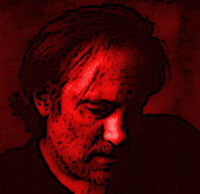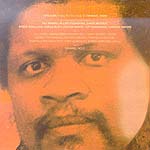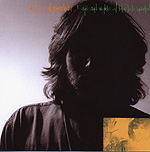
|
||
| Volume II, Issue II | Summer 2003 | |
| Summer 2003 Home Page |
| Culture, Politics & Technology |
| Fiction |
| Music |
| Poetry |
| Theater |
| About / Contact |
| Archive |
| Current Home Page |
The evolution of improvisation
This article originally published in the American Clavé discussion group.As far as what I do during live performances, that's a whole story, and an evolved (not always for the best) and evolving one.
|

Kip Hanrahan |
When it works, it's magic. Sometimes, it's a train wreck. Not all the new ideas you get during a concert are as good as the ones already written and rehearsed. And the method looks awkward to people who don't know what I'm doing. But it does let us NOT get stuck quoting music that's already there, repeating music that existed the set the night before. This way, each night we allow a new musical truth, or set of musicly possible illusions, to make itself audible in whatever town or space we're playing in.
As far as my actually playing on stage, that was a problem from the time Gil suggested it. I write on guitar (I'd like to write on bass, but ...), but it's (like Gil used to say of his piano playing) composer's guitar. I write to hear the chords and notes move, but I'm bored with my playing and phrasing. It's much more interesting for me to, in the studio and on stage, have a more interesting guitarist, like Leo Nocentelli, find something in what I wrote, and play it to a deeper music, even if that player can't "technically" play the same voiced chords, or can't read or whatever. Or, at some of the richest moments, have the basses play the moving notes of what I'v writen on guitar, using only the essential ones, but making it stronger. (You have to admit that the bassists I've been lucky enough to work with are all enough of musicians to transform whatever I write into seven times the music, by what they include and what they leave out, and how they do it. Man.)
![]()
Summer 2003 Music Section | Summer 2003 Main Page
Current Music Section | Current Home Page
Copyright ©
Reprinted by permission of author, who retains all copyright and control.

